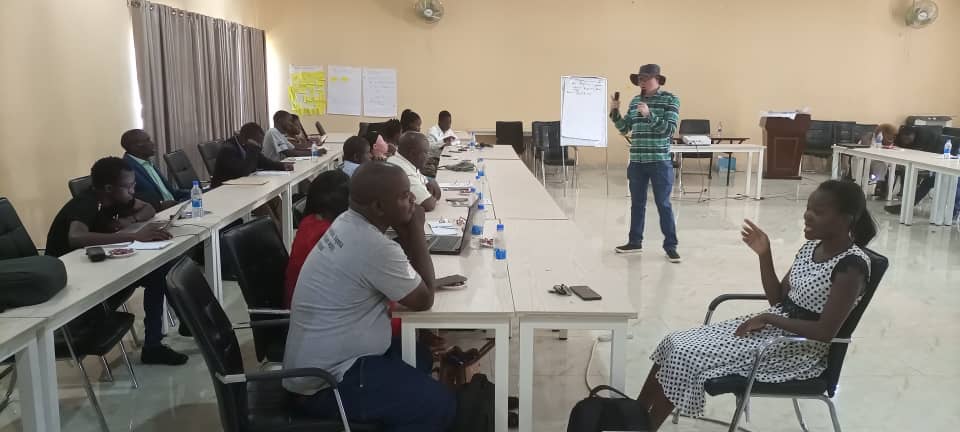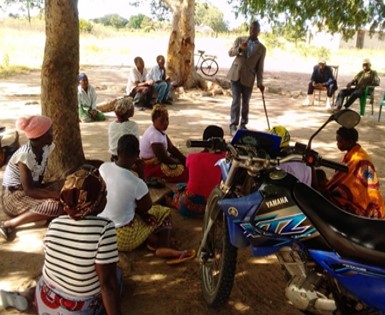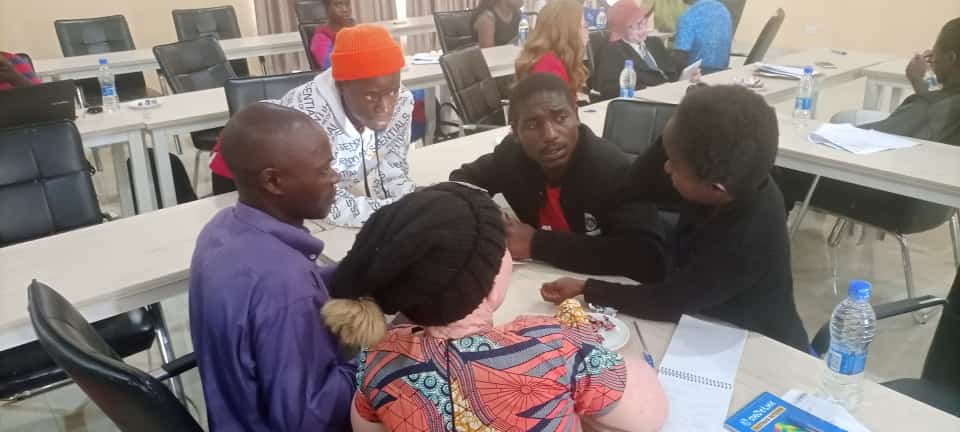
A core component of the SPARK program is the Disability Inclusion Facilitator (DIF) Approach, which positions young people with disabilities as agents of change in rural economies in Burkina Faso, India, Malawi and Mozambique. The DIF Approach was developed through a social innovation lab processed and prototyped by Light for the World Uganda under the Make 12.4% Work Initiative before being tailored and scaled up for the SPARK program.
The approach embodies three core principles:
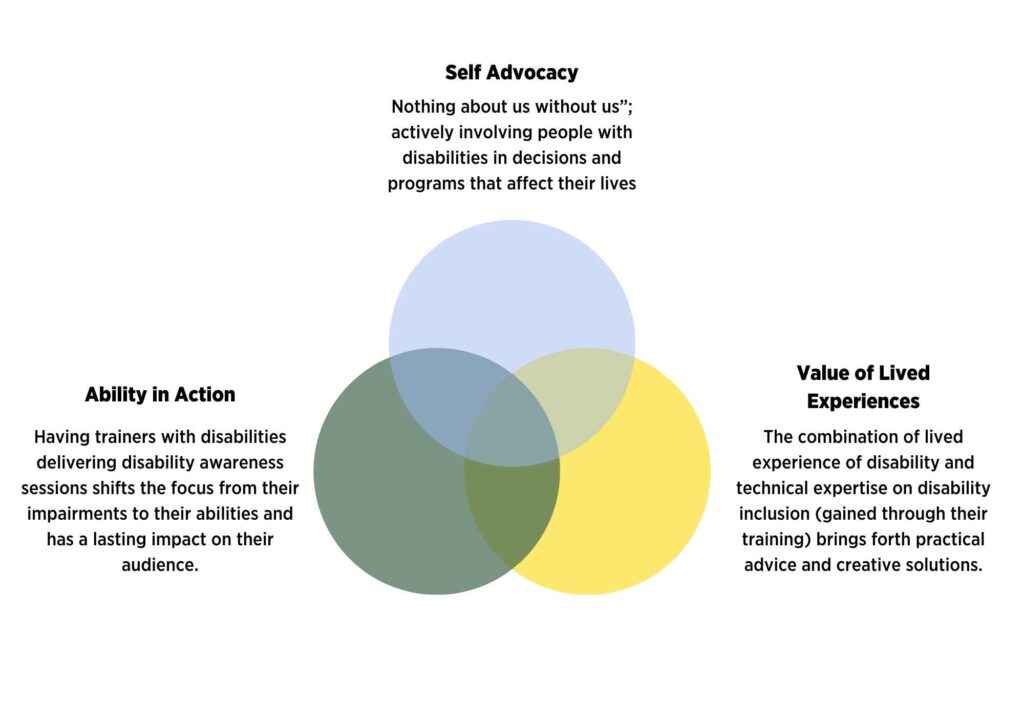
Roles of DIFs in SPARK
Within the SPARK Programme, the main role of the DIF is to support awareness raising on disability inclusion for IFAD’s implementing partners and stakeholders, sparking more inclusive projects, and supporting persons with disabilities in accessing support networks, services, and economic opportunities.
Building Relationships With IFAD Partners and Stakeholders
Build strong professional relationships with IFAD program staff, partner organizations, communities, and Organizations of Persons with Disabilities to help drive the mission of disability inclusion in rural settings
Search for Opportunities
Search for opportunities to improve the participation of persons with disabilities in agriculture within the context of the IFAD programs supported
Raise Awareness
Conduct disability awareness trainings for IFAD staff, partners and stakeholders involved in selected programs. These stakeholders could include organizations like NGOs, CBOs, farm cooperatives, banks, microfinance institutions and more
Support Inclusive Programming
Support IFAD partners and stakeholders in developing and implementing inclusive programming by following up on action plans set and providing technical support for inclusive solutions where needed
The Disability Inclusion Academy
To ensure the young people with disabilities selected in the program to work as DIFs are equipped with the skills and knowledge they need to successfully fulfill these roles, candidates will undergo an interview process carried out in partnership with local Organization of Persons with Disabilities (OPDs).
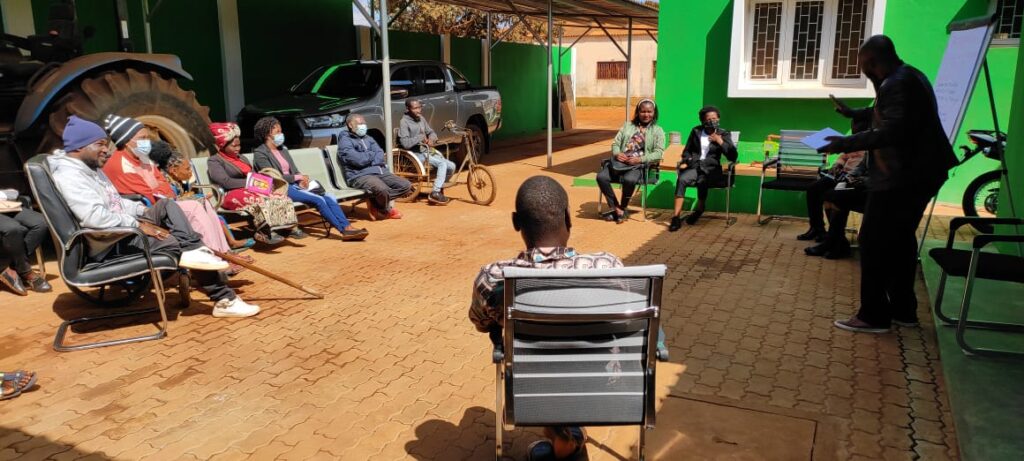
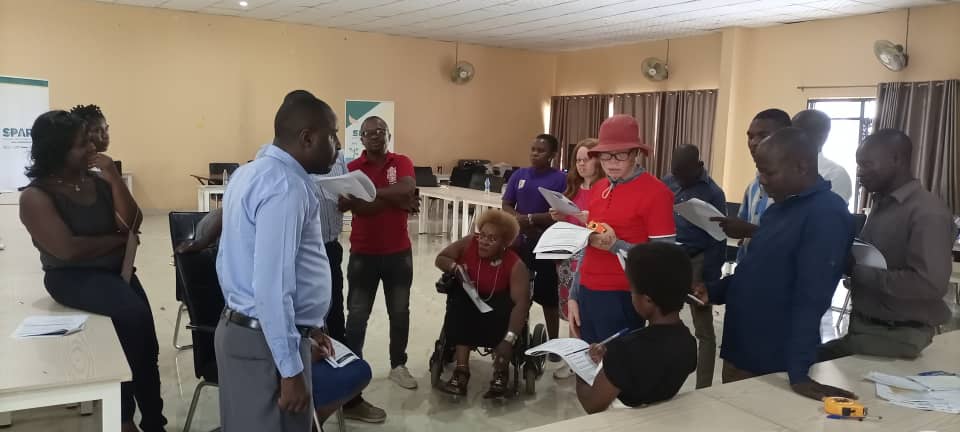
Following the initial selection, successful candidates will participate in the Disability Inclusion Academy, a six-day training followed by a six to nine month mentorship program where trainee DIFs will gain on-the-job training.
During the initial six-day training, participants are introduced to the roles and responsibilities of a DIF, the basics of inclusion, specific information on different types of impairments, and training on how to organize and facilitate Disability Awareness Trainings.
The Academy continues with a mentorship period that will give trainee DIFs the opportunity to put these new skills into practice by undertaking professional activities accompanied by a mentor. Trainee DIFs will receive feedback on their progress and support until they are able to perform their roles successfully and independently. Following the mentorship period, trainees are then certified as full-fledged Disability Inclusion Facilitators.
Disability Inclusion Academy Update
Disability Inclusion Academies are currently underway in Burkina Faso, Malawi and Mozambique with the initial six day trainings taking place over the last few months. Trainees were enthusiastic to participate and were given the opportunity to learn first hand from representatives of OPDs.
During their trainings, participants learned about the relevant disability laws in their countries, the IFAD programs they will be supporting and learned the basics of Disability Inclusive Value Chains. Trainee DIFs also participated in hands-on activities like The Game of Life, which allowed them to understand the complex intersectional barriers faced by people with disabilities in rural economies.
In Mozambique, trainee DIFs have been hard at work conducting 28 Disability Awareness Trainings reaching a total of 778 people. Trainings have raised awareness with farmer associations, savings groups, agricultural businesses and environmental protection agencies.
